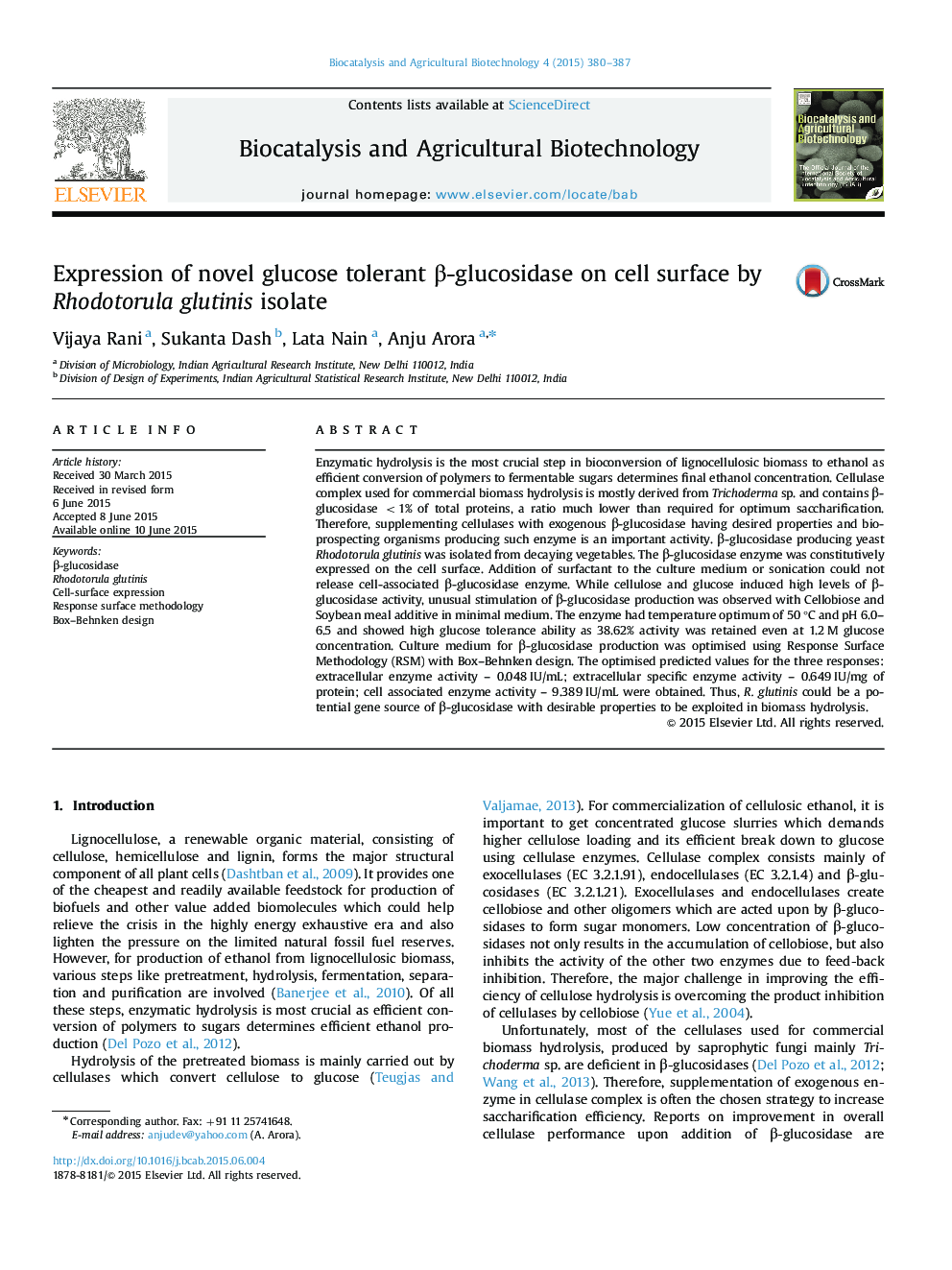| Article ID | Journal | Published Year | Pages | File Type |
|---|---|---|---|---|
| 2075465 | Biocatalysis and Agricultural Biotechnology | 2015 | 8 Pages |
Abstract
Enzymatic hydrolysis is the most crucial step in bioconversion of lignocellulosic biomass to ethanol as efficient conversion of polymers to fermentable sugars determines final ethanol concentration. Cellulase complex used for commercial biomass hydrolysis is mostly derived from Trichoderma sp. and contains β-glucosidase <1% of total proteins, a ratio much lower than required for optimum saccharification. Therefore, supplementing cellulases with exogenous β-glucosidase having desired properties and bioprospecting organisms producing such enzyme is an important activity. β-glucosidase producing yeast Rhodotorula glutinis was isolated from decaying vegetables. The β-glucosidase enzyme was constitutively expressed on the cell surface. Addition of surfactant to the culture medium or sonication could not release cell-associated β-glucosidase enzyme. While cellulose and glucose induced high levels of β-glucosidase activity, unusual stimulation of β-glucosidase production was observed with Cellobiose and Soybean meal additive in minimal medium. The enzyme had temperature optimum of 50 °C and pH 6.0-6.5 and showed high glucose tolerance ability as 38.62% activity was retained even at 1.2 M glucose concentration. Culture medium for β-glucosidase production was optimised using Response Surface Methodology (RSM) with Box-Behnken design. The optimised predicted values for the three responses: extracellular enzyme activity - 0.048 IU/mL; extracellular specific enzyme activity - 0.649 IU/mg of protein; cell associated enzyme activity - 9.389 IU/mL were obtained. Thus, R. glutinis could be a potential gene source of β-glucosidase with desirable properties to be exploited in biomass hydrolysis.
Keywords
Related Topics
Life Sciences
Agricultural and Biological Sciences
Agricultural and Biological Sciences (General)
Authors
Vijaya Rani, Sukanta Dash, Lata Nain, Anju Arora,
